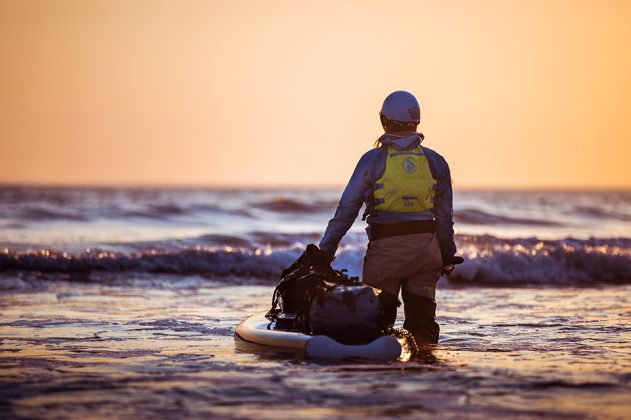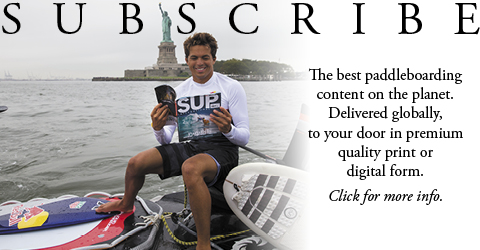GET PSYCHED #8 –
HEURISTIC TRAPS
With – Sian Sykes
Photos – Chris Davies
What does a rule of thumb, educated guess, guesstimate, and plain old common sense have in common? They’re all examples of heuristic thinking: a technique that each of us use quite naturally in everyday life. They allow us to reach an immediate goal without putting too much thought into it, meaning we get stuff done quicker. Heuristic techniques are fine when you’re shopping for groceries for example, but heuristic thinking in critical situations that we as paddlers might find ourselves in, can lead to disaster. This issue, I want to talk about how to recognise and avoid heuristic traps. Otherwise known as, ‘check yourself before you wreck yourself ’.
My initial awareness to heuristic traps came from my avalanche awareness training course with Avalanche Geeks whilst preparing for the International Mountain Leader assessment in the Alps. People who call the mountains their playground, such as back-country skiers and alpinists have to be educated to these traps, but the concept can be applied perfectly to stand up paddling, and in fact any adventure sport with elements of risk.
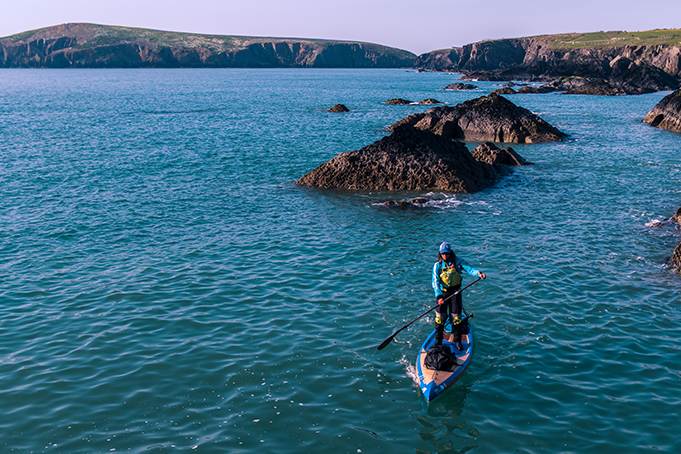
PICKING UP LEMONS
I like to tell my clients that when we collect lemons. Lemons are added margins of safety…things like getting an early start, a good paddling partner who you know how they will cope, not taking shortcuts with your equipment, mobile phone properly charged…Using little self-guiding rules are very good techniques to mitigate our heuristic thinking. The more margins of safety we have in place, the better chance we have of recovering from a heuristic (or any other ) snafu.
When I was paddling around Wales my lemons were things like: I’ve never paddle this area before, it’s a spring tide, there’s ten foot of swell, I’m carrying 40 kg of bags…Based on my experience I would make a judgement call as to how far, or even whether to paddle at all that day.
One particular day on the canal it was like paddling in treacle. I wasn’t as fast as my friends on sea kayaks and it would have been easy to get pressurised thinking ‘well they’ve paddled X distance today, so should I’. Instead, I set small targets of 10km and would stop and see how I felt. Then I’d go again, and ended up paddling 70km.
When the conditions were really rubbish I’d get off the water, spend time mobilising overworked muscles, refuel, and gather new information about the journey ahead. I’d use my time on shore wisely and every day was a real delight because I was at the mercy of Mother Nature. Listen to your instincts, take the pressure off yourself and don’t be swayed into ‘it’ll be alright’ – you will have more successful adventures.
So when you face each day, do so with a fresh set of eyes – especially in dynamic environments like rivers, where debris, water levels and flow can change.
“When you face each day, do so with a fresh set of eyes – especially in a dynamic environment where things can change.”
FIVE COMMON HEURISTIC TRAPS
These traps can be the result of your own thinking or influence from others. Here are some common ones, see if you can relate any of them to your own experiences.
EXPERT HALO
This trap is often related to the more social type of paddling crews. Someone in your crew, it might even be yourself, may be a little older, or wiser, and this can earn them the label of ‘expert’. People sometimes become an informal leader because they have the right type of personality and they can end up making decisions for the group – not just about what biscuits to buy but also at a critical level. If they’re an expert, that’s great – but if not, it could be very serious.
Potentially people in the group will take a risk they usually wouldn’t because they are following the leader. Be aware if you are following someone into something you wouldn’t usually do, and if you have become the informal leader remember that you have power as a role model and always extend duty of care to your crew.
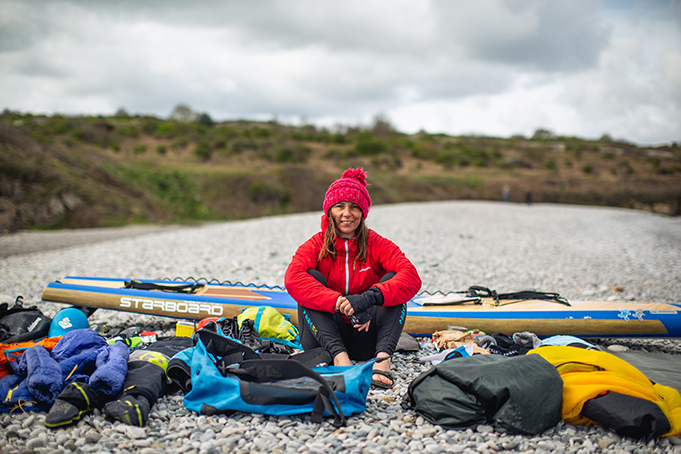
SOCIAL PROOF
This one comes down to five words: everyone else is doing it. We tend to think that if everyone else is paddling a stretch of water that in an area that we’re unsure about, then it should be fine for us to do so to. Remember that not for the first time, everyone can be wrong!
Don’t be a lemming and follow them off the cliff. Make your own decisions and stick with them, don’t be swayed by other people or do things you’re not sure about to get their acceptance.
It’s interesting to note too that people who are confident in their own abilities take greater risks when an audience is watching them, so while the person you are following may seem confident you may be following them into a completely unknown situation.
COMMITMENT
This trap comes from within. You say you’re going out paddle boarding, so therefore you’re committed to go. You turn up at the water, and the conditions aren’t looking good, but you drove up in your wetsuit and the board’s on the roof so you’re going in regardless. But hold on! Be mindful that you are allowed to change your mind – be ready to shift your perspective to save yourself from pain.
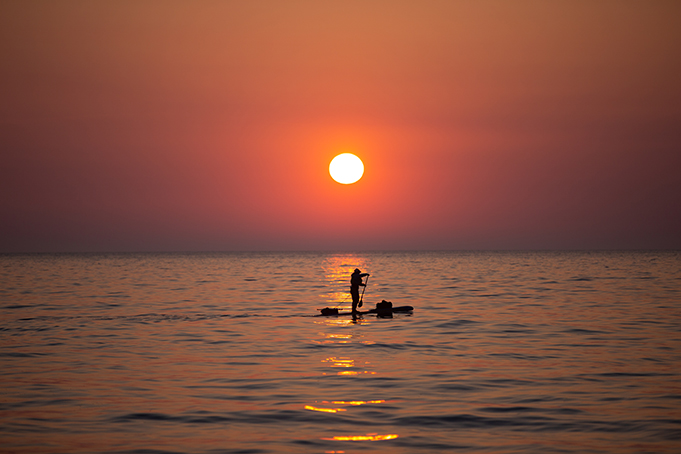
SCARCITY
This is too common for all of us. Everybody’s time is short. You’ve made plans for the weekend and finally you’re free to get out on your board. But on arrival things aren’t as expected and conditions are bad, but you’re keen to go anyway because time is precious, you’ve only got this day to do it, so you have to do it!
Have a mental check and look at the conditions you face at that time. If you knew it was going to be just as unsafe next week would you drive all the way back out here or find something else productive to do instead?
LIKING AND CONFORMITY
I’m sure this has always been a trap but now it comes with a modern twist. Humans are hardwired to desire acceptance and we have the potential to do insane things in the name of gaining the respect and admiration of our peers. I mean who doesn’t love to watch Kai Lenny at Jaws – it’s amazing! The Red Bull athletes across a wide spectrum of sports are pushing it and pushing it, often in surreal ways to gain huge followings but where does that leave the non-athlete who doesn’t have a team of coaches and physiotherapists around them?
It is tempting for some people to look at their role model and think, ‘well, if their doing that and getting all that love and likes, if I do it, surely I’ll get likes too!’
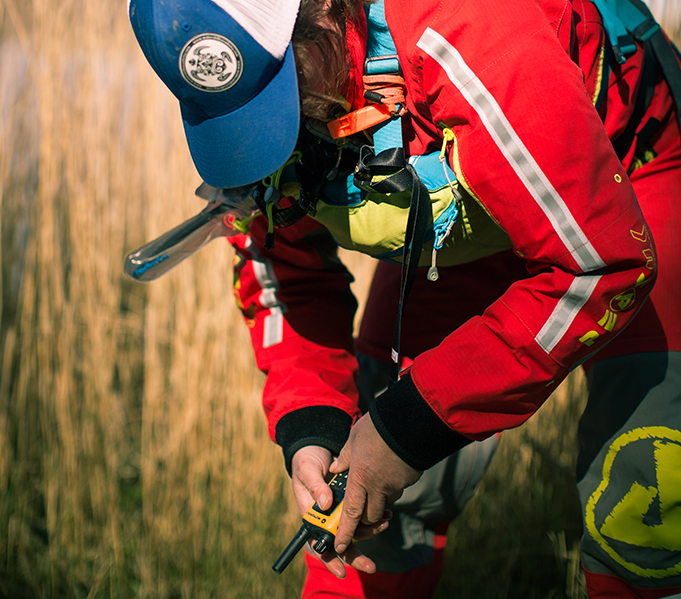
IN THE REAL WORLD
In 2012, the New York Times wrote an excellent article titled Snow Fall on the Tunnel Creek avalanche tragedy. Fifteen of the USA’s top skiers and snowboarders were making a run together when an avalanche was triggered. Five of them were caught in it, and three, including the ‘organizer’ Chris Rudolph, died. The survivors were interviewed and there was evidence of people falling into heuristic traps, saying they had misgivings at the top, but didn’t say anything because of the social influences of being in a large group.
The danger with heuristic traps is also their brilliance: they’re very automatic and it’s easy to fall into them even when you’re aware of them. Take a minute to assess whether you’re thinking clearly, especially when you’re under pressure. You know there’s a risk; ask what can I do to help minimise that risk?
Stand up paddle boarding is still enjoying huge growth and we’re pushing further in terms of how far, how remote, how big and how steep the water is that we paddle. It is important to keep the boom happening and keep pushing our own limits for the right reasons. SUP INTERNATIONAL
ABOUT SIAN

Sian is a fully qualified International Mountain Leader and SUP instructor in Wales, UK and runs her own business Psyched Paddleboarding www.psychedpaddleboarding.com Sian has travelled the world, building up vast experience of leading expeditions to Nepal, Mongolia, India, China, Peru, Morocco, Iceland, Europe and the Alps. Sian’s mission is to inspire others to SUP and to offer high quality SUP training and safety advice. She offers memorable stand up paddle boarding adventures whether hiking to a tranquil wilderness lake, exploring stunning coastlines and of course leading SUP expeditions.

